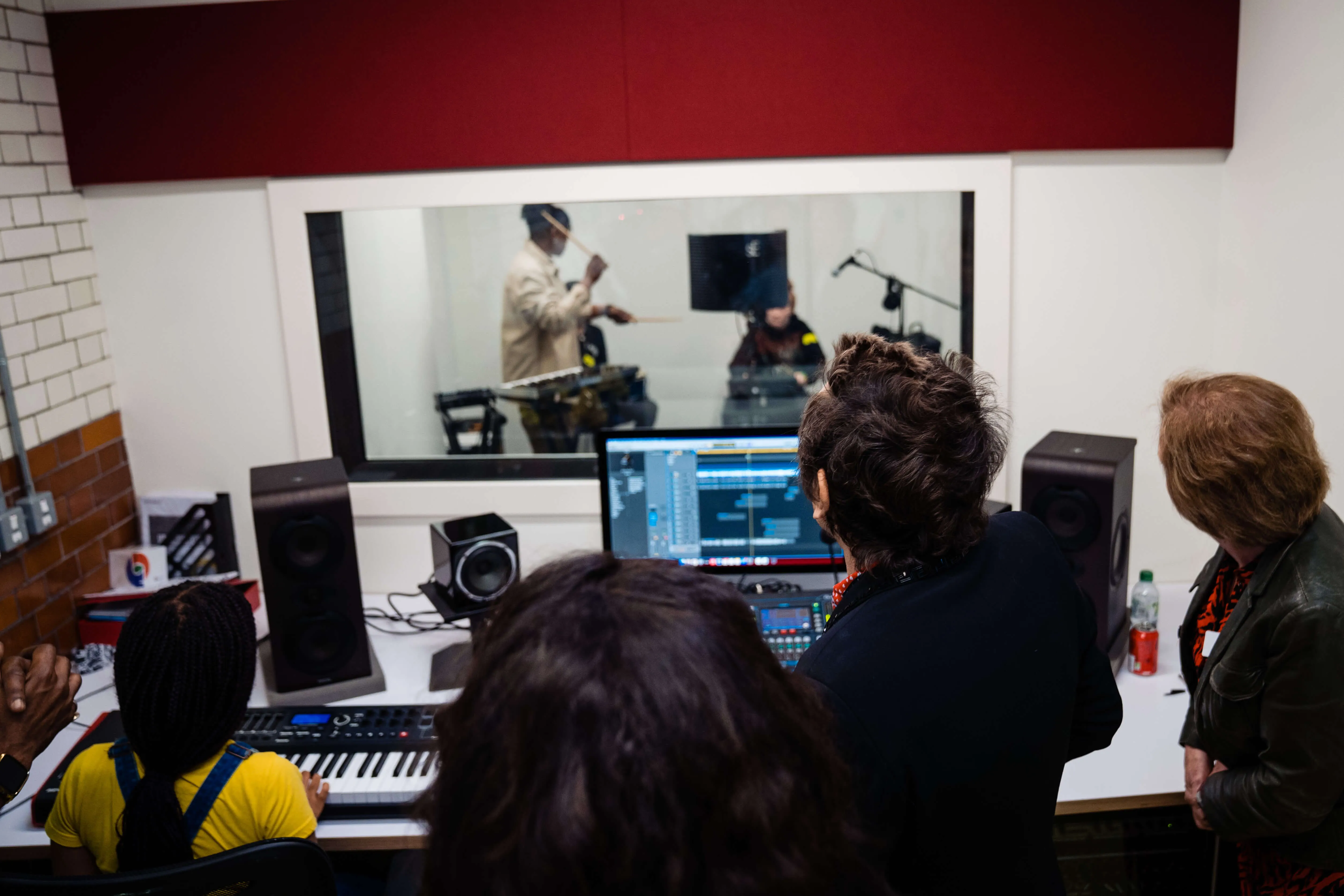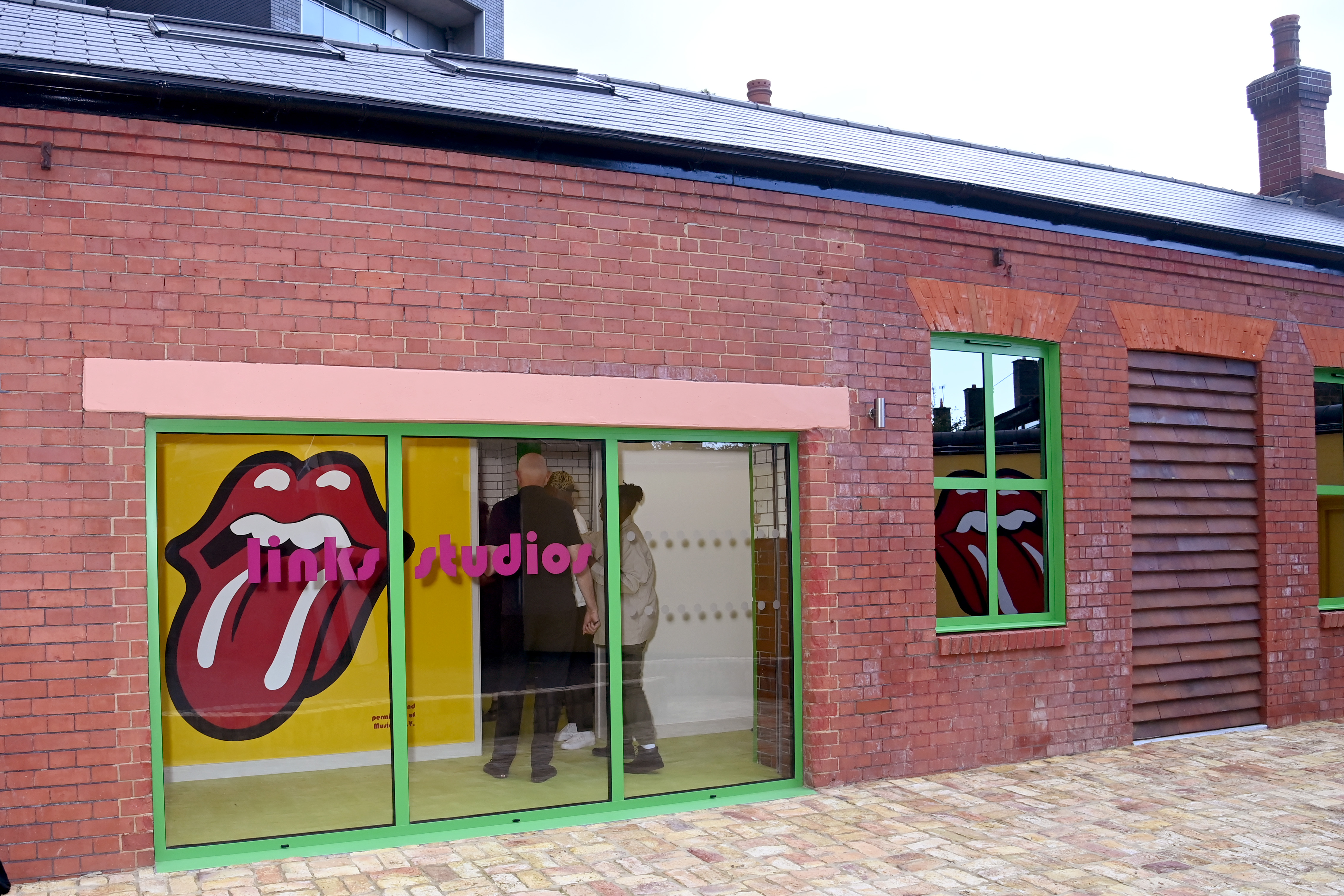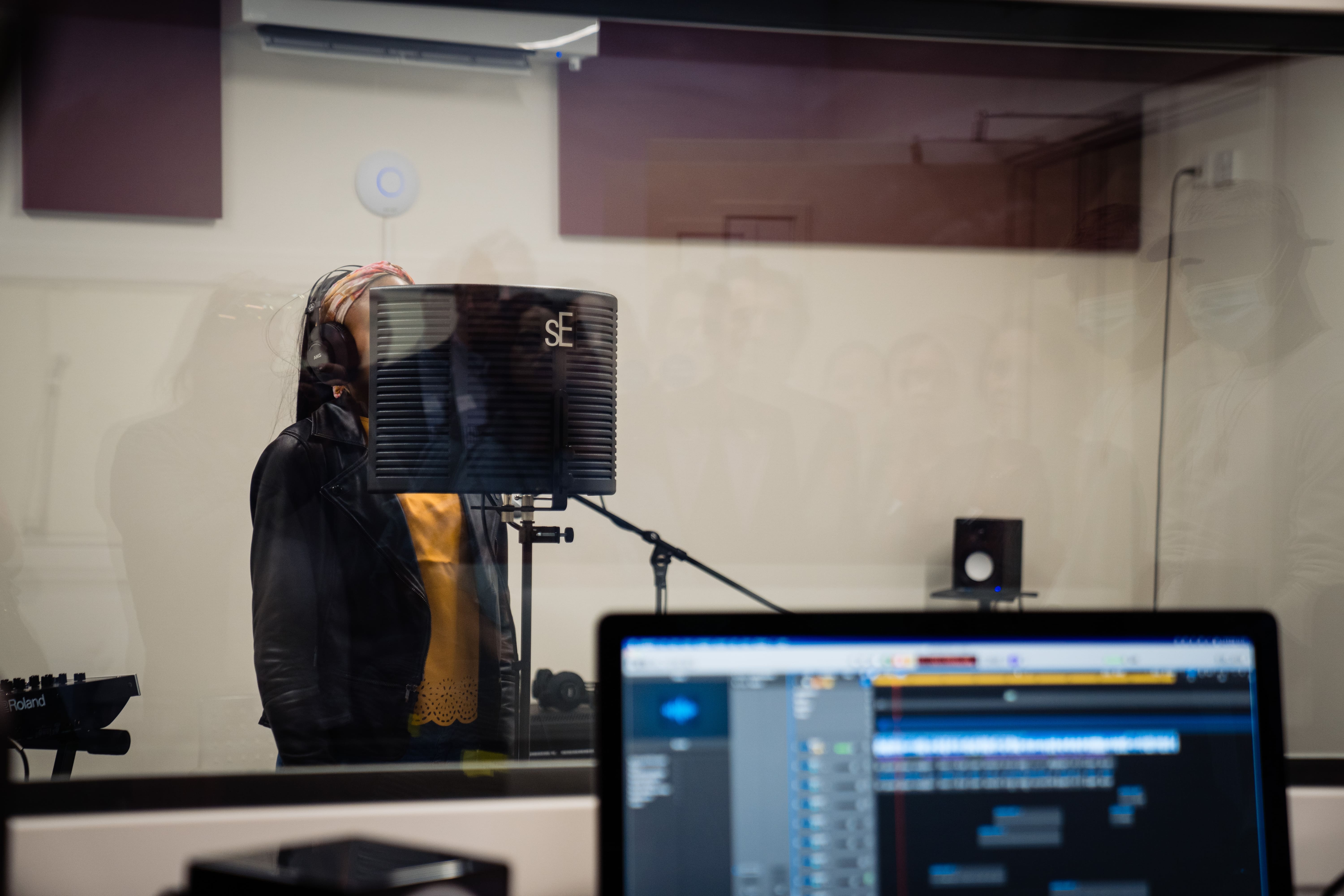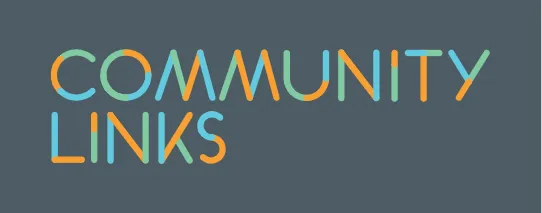
At Community Links, we have recently published an important piece of research, ‘Arts as a Youth Intervention’ in which we push the case for why activity within ‘the place’, namely arts, can be critical not only for tackling youth violence, but also when it comes to helping young people and communities to thrive. Whilst we recognise that the role of arts as a youth intervention falls outside traditional metrics. We believe that it adds value to society through strengthening community relationships, improving social mobility, educational performances and health and well- being.
‘The arts have played an important role in promoting health and well-being across communities. Research by the Arts Council England has evidenced that a higher frequency of engagement with arts and culture is generally associated with a higher level of subjective well- being¹. Access to the arts helps us to live well in our communities² and is a reason for investment. With 1 in 4 people experiencing a mental health problem of some form each year,³ and an increased need for support around anxiety and depression for young people during the pandemic,⁴ arts engagement can lessen these health challenges. Investigating the direct and indirect impacts of arts and cultural experiences on secondary children, the University of Nottingham found that 45% of students sampled said that engagement in the arts helps them relax and reduces stress⁵. The study brings to light the profound impacts that sustained engagement with arts and culture can have on mental health and how to support the health and well-being of young people'.⁶
As the country’s focus turns to how we ‘Build Back Better’, we believe that now is the time for a renewed focus on how communities can reposition themselves to support young people’s mental and physical health, wellbeing, and job prospects. Young people are being left behind in our uneven recovery in the job market, and the link between lack of employment and poor health is clearly documented. Our research argues that arts as a youth intervention has a central role to play as part of a meaningful recovery.
Through community-based arts programs, young people can develop soft skills and an enhanced sense of personal agency, contributing to workplace success. In communities with pockets of deprivation, such as ours in East London, arts initiatives provide young people with a channel to develop soft skills like communication and teamwork which can be translated to the working world. Studies have found that structured art activities lead to increases in transferable skills by up to 17%.
Our research presents the case for an inclusive cultural policy that genuinely reaches grassroot levels and calls for greater investment in this area. As local authority spending on crucial services has almost halved over the last decade, more young people are reaching crisis point. Over time local networks that acted as a safety net for young people living in the poorest parts of the country have disappeared and the role of the arts in community settings has faded. The key to progress will be coming together to address inequalities in arts engagements and promote inclusive arts interventions for young people.

At Community Links, we are putting arts as a youth intervention at the centre of what we do. We are proud to unveil our new recording studio - Links Studios - generously funded by the Rolling Stones and others. Links Studios will host a range of programmes that combine music participation and enrichment activities to build tangible skills for the creative economy, alongside soft skills and more traditional core qualifications in English and Maths.

Moreover, our state-of-the-art recording studio and formal study programme will be invaluable in a diverse borough like ours as a vehicle to help tackle inequality in the arts sector. Presently there are significant inequalities when it comes to those working in the arts. 18.2% of people working in music, performing and visual arts grew up in working-class households. When it comes to ethnicity, only 4.8% of employees in music, performing and visual arts come from black and minority ethnic backgrounds.
Arts as a youth intervention has a role in reversing long-standing inequalities and creating a supportive environment for young people to grow professionally and personally. However, for this potential to be realised, policymakers need to focus on 5 key areas;
The Arts as a Youth Intervention research paper was written by my colleagues, Murshad Habib (Policy and Learning Manager) and Rachael Smith (Policy and Communications Officer). We are grateful to the National Lottery Community Fund for supporting our work.
Community Links is proudly part of social business Catch22.

¹ https://www.artscouncil.org.uk/sites/default/
² https://www.culturehealthandwellbeing.org.uk/
⁴ https://www.thinknpc.org/resource-hub/digital-mental-health-services/#headline1
⁶ Community Links (2021) Art as a Youth Intervention p9.
